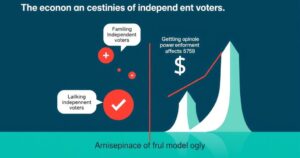Is Progressive Politics Dying in California?
Election results hint at changing political landscape in California.
Is progressive politics on the decline in California? Recent election results suggest a noticeable shift towards centrist politics. Vice President Kamala Harris won the state; however, local races show a concerning trend for progressives, with ten counties voting Republican and over 40% supporting Donald Trump — the highest level for a GOP presidential candidate since 2004. Californians also made some surprising decisions at the ballot box, including passing Proposition 36 which toughens penalties for retail theft and drug trafficking while rejecting Proposition 6, which would have abolished prison slavery while compensating inmates for their work.
Experts express mixed views on future of progressives.
The defeat of prominent progressive figures like Oakland’s Mayor Sheng Thao, along with others in the Bay Area, underscores this shift. Experts like UC Santa Cruz history professor Nolan Higdon believe that progressives in the state might be in trouble for the foreseeable future. He points out that voters, even in traditionally liberal areas, seem to blame softer crime policies for increasing crime rates, leading to a backlash against progressive candidates. Vinod Aggarwal echoed this sentiment, stating that progressive politics is teetering on the brink and that for most voters, moderation resonates more than liberal activism.
Voter frustration drives demand for new approaches.
In contrast, Corey Cook of Saint Mary’s College remains optimistic, believing that progressive politics isn’t dead but is undergoing a necessary reevaluation. He suggests that economic concerns and their insufficient attention to the working class contributed to the election outcomes. Voter frustration prompted them to seek alternative approaches, especially regarding crime and homelessness. KTVU political analyst Brian Sobel concurred, noting that voters are looking for candidates who promise change, indicating a restlessness within the electorate, especially in San Francisco.
Economic challenges push voters towards new political ideas.
The economic challenges in California appear to have driven voters to consider red alternatives this election season. Higdon notes that many residents are eager to explore new political ideas, questioning the status quo as they grapple with economic pressures like housing and commuting issues. The pull towards Republican candidates may not solely hinge on admiration for Trump but rather on a search for practical solutions. Meanwhile, Aggarwal warns that focusing exclusively on left agendas could lead to further electoral repercussions for Democrats.
Political landscape in California could change swiftly.
As we consider the future, it seems clear that voters have been both unwavering and unpredictable in their demands. The trajectory of progressive politics in California isn’t straightforward, and experts suggest that the answer may require Democrats to re-evaluate how they come across to the electorate. Yet, the historical context shows that political landscapes can change rapidly, and while this moment may feel like a setback for progressives, it’s crucial to remember how swiftly sentiments can shift, especially with changing national tides in the coming years.




